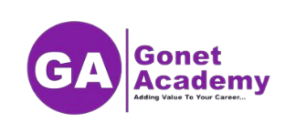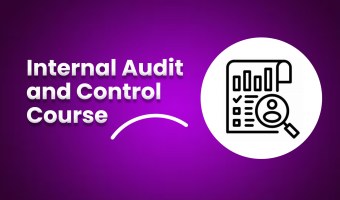Certificate in Internal Audit and Control
About This Course
The Internal Audit and Control Certificate Program equips participants with the skills and knowledge needed to assess organizational processes, evaluate risks, and ensure compliance with internal and external regulations. This program focuses on key areas such as audit planning, risk assessment, fraud detection, internal controls, and reporting. By the end, participants will be prepared to strengthen organizational accountability and governance through effective internal auditing.
Learning Objectives
Understand the principles and importance of internal auditing and control.
Plan and execute internal audits effectively.
Assess and enhance internal controls to mitigate risks.
Detect and prevent fraud in organizations.
Ensure compliance with regulatory frameworks and standards.
Communicate audit findings and recommendations.
Target Audience
- Aspiring Internal Auditors: Individuals seeking foundational knowledge and skills to start a career in internal auditing and control.
- Audit Officers: Professionals looking to enhance their expertise in auditing practices and regulatory compliance.
- Finance Officers: Individuals managing or overseeing financial controls in organizations.
- Risk Management Professionals: Employees responsible for identifying and mitigating organizational risks.
- Government Officials: Public sector employees involved in auditing and oversight roles.
- NGO and Nonprofit Managers: Professionals managing donor-funded projects and ensuring accountability through audits.
- Business Owners and Entrepreneurs: Individuals looking to implement effective internal controls in their businesses.
- Accountants and Compliance Officers: Professionals managing internal compliance and ensuring adherence to policies and procedures.
- Career Changers: Professionals transitioning into internal audit and control roles from other industries.
Curriculum
30h
Module 1: Introduction to Internal Auditing
This module provides foundational knowledge of internal auditing, emphasizing its role, principles, and importance in organizational governance. Participants will explore the purpose of internal audits in improving operations and ensuring accountability. The focus is on understanding the basics of auditing as a key component of effective management.
Module 2: Audit Planning and Risk Assessment
This module focuses on the processes of planning audits and identifying potential risks to enhance auditing effectiveness. Participants will learn to develop audit plans and conduct risk assessments to prioritize areas of concern. The emphasis is on preparing for audits that add value and improve organizational performance.
Module 3: Evaluating Internal Controls
Participants will learn to assess the adequacy and effectiveness of internal controls in organizations. This module highlights techniques for evaluating systems, processes, and controls to ensure they align with organizational objectives. The focus is on identifying weaknesses and recommending improvements to safeguard assets and operations.
Module 4: Fraud Detection and Prevention
This module emphasizes the techniques and strategies used to identify, investigate, and prevent fraud within organizations. Participants will explore methods for detecting fraudulent activities and implementing controls to mitigate risks. The focus is on fostering integrity and protecting organizational resources from fraud.
Module 5: Reporting, Communication, and Compliance
Participants will learn how to compile audit findings into clear and actionable reports that ensure compliance with regulatory standards. This module highlights the importance of effective communication in presenting audit results to stakeholders. The focus is on aligning audit outcomes with organizational goals and compliance requirements.





